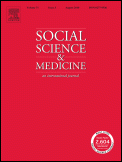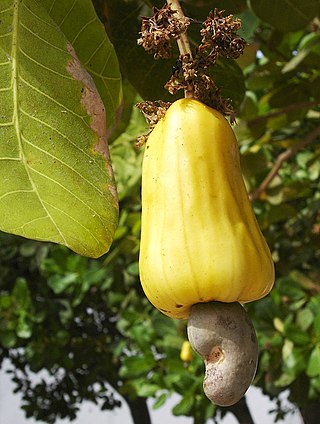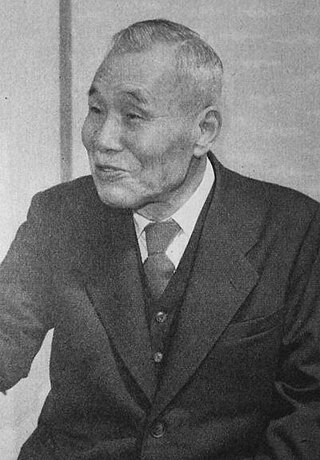Related Research Articles

An intestinal parasite infection is a condition in which a parasite infects the gastro-intestinal tract of humans and other animals. Such parasites can live anywhere in the body, but most prefer the intestinal wall.

The London School of Hygiene & Tropical Medicine (LSHTM) is a public research university in Bloomsbury, central London, and a member institution of the University of London that specialises in public health and tropical medicine. The institution was founded in 1899 by Sir Patrick Manson, after a donation from the Indian Parsi philanthropist B. D. Petit.
Tropical diseases are diseases that are prevalent in or unique to tropical and subtropical regions. The diseases are less prevalent in temperate climates, due in part to the occurrence of a cold season, which controls the insect population by forcing hibernation. However, many were present in northern Europe and northern America in the 17th and 18th centuries before modern understanding of disease causation. The initial impetus for tropical medicine was to protect the health of colonial settlers, notably in India under the British Raj. Insects such as mosquitoes and flies are by far the most common disease carrier, or vector. These insects may carry a parasite, bacterium or virus that is infectious to humans and animals. Most often disease is transmitted by an insect bite, which causes transmission of the infectious agent through subcutaneous blood exchange. Vaccines are not available for most of the diseases listed here, and many do not have cures.

Dulcin is an artificial sweetener about 250 times sweeter than sugar, discovered in 1883 by the Polish chemist Józef (Joseph) Berlinerblau. It was first mass-produced about seven years later. Although it was discovered only five years after saccharin, it never enjoyed the latter compound's market success. Nevertheless, it was an important sweetener of the early 20th century and had an advantage over saccharin in that it did not possess a bitter aftertaste.

Max Theiler was a South African-American virologist and physician. He was awarded the Nobel Prize in Physiology or Medicine in 1951 for developing a vaccine against yellow fever in 1937, becoming the first African-born Nobel laureate.

Kampo or Kanpō medicine, often known simply as Kanpō, is the study of traditional Japanese medicine in Japan following its introduction, beginning in the 7th century. It was adapted and modified to suit Japanese culture and traditions. Traditional Japanese medicine uses most of the Chinese methods, including acupuncture, moxibustion, traditional Chinese herbology, and traditional food therapy.

Nagasaki University is a national university of Japan. Its nickname is Chōdai (長大). The main campus is located in Bunkyo-machi, Nagasaki City, Nagasaki Prefecture, Japan.

Social Science & Medicine is a peer-reviewed academic journal covering social science research on health, including anthropology, economics, geography, psychology, social epidemiology, social policy, sociology, medicine and health care practice, policy, and organization. It was established in 1967 and is published by Elsevier.
The American Journal of Epidemiology (AJE) is a peer-reviewed journal for empirical research findings, opinion pieces, and methodological developments in the field of epidemiological research. The current editor-in-chief is Enrique Schisterman.

Traditional Brazilian medicine includes many native South American elements, and imported African ones. It is predominantly used in areas where indigenous groups and African descendants reside, like in the northeast coast, nearly all interior regions including Amazon regions, savannahs, rainforest, foothills, and Pantanal. According to Romulo R. N. Alves, "although Brazil's health system is public...use of traditional remedies and rituals provide an economical way of healing for much of the populace, but that also does not mean that wealthy Brazilians don't seek it out as well. Traditional medicine is a deep part of Brazilian heritage."

Sir Gordon Covell was a physician and a major general in the Indian Medical Service. He specialized in malaria disease control and eradication efforts and was a member of the expert committee on malaria set up by the WHO from 1948 to 1958, serving as its secretary. He was also an advisor to the British Ministry of Health and the Director of the Malaria Laboratory at Horton Hospital.
The American Society of Tropical Medicine and Hygiene (ASTMH) is an Arlington, Virginia-based non-profit organization of scientists, clinicians, students and program professionals whose longstanding mission is to promote global health through the prevention and control of infectious and other diseases that disproportionately afflict the global poor. ASTMH members work in areas of research, health care and education that encompass laboratory science, international field studies, clinical care and country-wide programs of disease control. The current organization was formed in 1951 with the amalgamation of the American Society of Tropical Medicine, founded in 1903, and the National Malaria Society, founded in 1941.

Kensuke Mitsuda was a Japanese leprologist and director of the Tama Zenshoen Sanatorium (1914–1931) and the National Sanatorium Nagashima Aiseien (1931–1957). He had been at the frontier of leprosy policy of Japan. He was given the Order of Cultural Merits (1951) and Damien-Dutton Award (1961). He has been the cause of admiration from one side, and the target of criticism from the other.

The Journal of the National Cancer Institute (JNCI) is a peer-reviewed medical journal covering research in oncology that was established in August 1940. It is published monthly by Oxford University Press and is edited by Patricia A. Ganz. It was merged with Cancer Treatment Reports in January 1988. JNCI used to be the official journal of the U.S. National Cancer Institute (NCI); however, in 1996, the NCI and JNCI agreed to grow apart. Over the next five years, JNCI became independent of the NCI.
Tropical Jazz Big Band ; incorrectly referred to in the United States as Nettai Tropical Jazz Big Band, is a Japanese latin jazz big band.
The Manson Medal, named in honour of Sir Patrick Manson, is the highest accolade the Royal Society of Tropical Medicine and Hygiene awards. Started in 1923, it is awarded triennially to an individual whose contribution to tropical medicine or hygiene is deemed worthy by the council.
Transactions of the Royal Society of Tropical Medicine and Hygiene is a monthly peer-reviewed medical journal covering all aspects of tropical medicine. It is the official journal of the Royal Society of Tropical Medicine and Hygiene and is published by Oxford University Press. According to the Journal Citation Reports, the journal has a 2018 impact factor of 2.820.

Dyann F. Wirth is an American immunologist. She is currently the Richard Pearson Strong Professor of Infectious Diseases at Harvard T.H. Chan School of Public Health.

Oriol Mitjà i Villar is a Catalan-born Spanish researcher and consultant physician in internal medicine and infectious diseases with expertise in poverty-related tropical diseases. He has conducted research at the Lihir Medical Centre in Papua New Guinea since 2010 on new diagnostic and therapeutic tools to eradicate yaws. He was awarded the Princess of Girona Award in the scientific research category. Currently at the Germans Trias i Pujol Research Institute, Mitjà is conducting research on SARS-CoV-2 coronavirus disease (COVID-19) and strategies to control the infection at a community level.

Scott Halstead is an American physician-scientist, virologist and epidemiologist known for his work in the fields of tropical medicine and vaccine development. He is considered one of the world's foremost authorities on viruses transmitted by mosquitoes, including Dengue, Japanese encephalitis, chikungunya and Zika. He was one of the first researchers to identify the phenomenon known as antibody-dependent enhancement (ADE), where the antibodies generated from a first dengue infection can sometimes worsen the symptoms from a second infection.
References
- ↑ "Nippon Nettai Igakkai zasshi. Japanese Journal of Tropical Medicine and Hygiene - Journals Result". NCBI journals database. Retrieved 2010-01-10.
- ↑ "Accepted journals. Title, ISSN and publication year when full text started" (PDF). Cabi.org. Archived from the original (PDF) on March 26, 2010. Retrieved 2010-01-12.